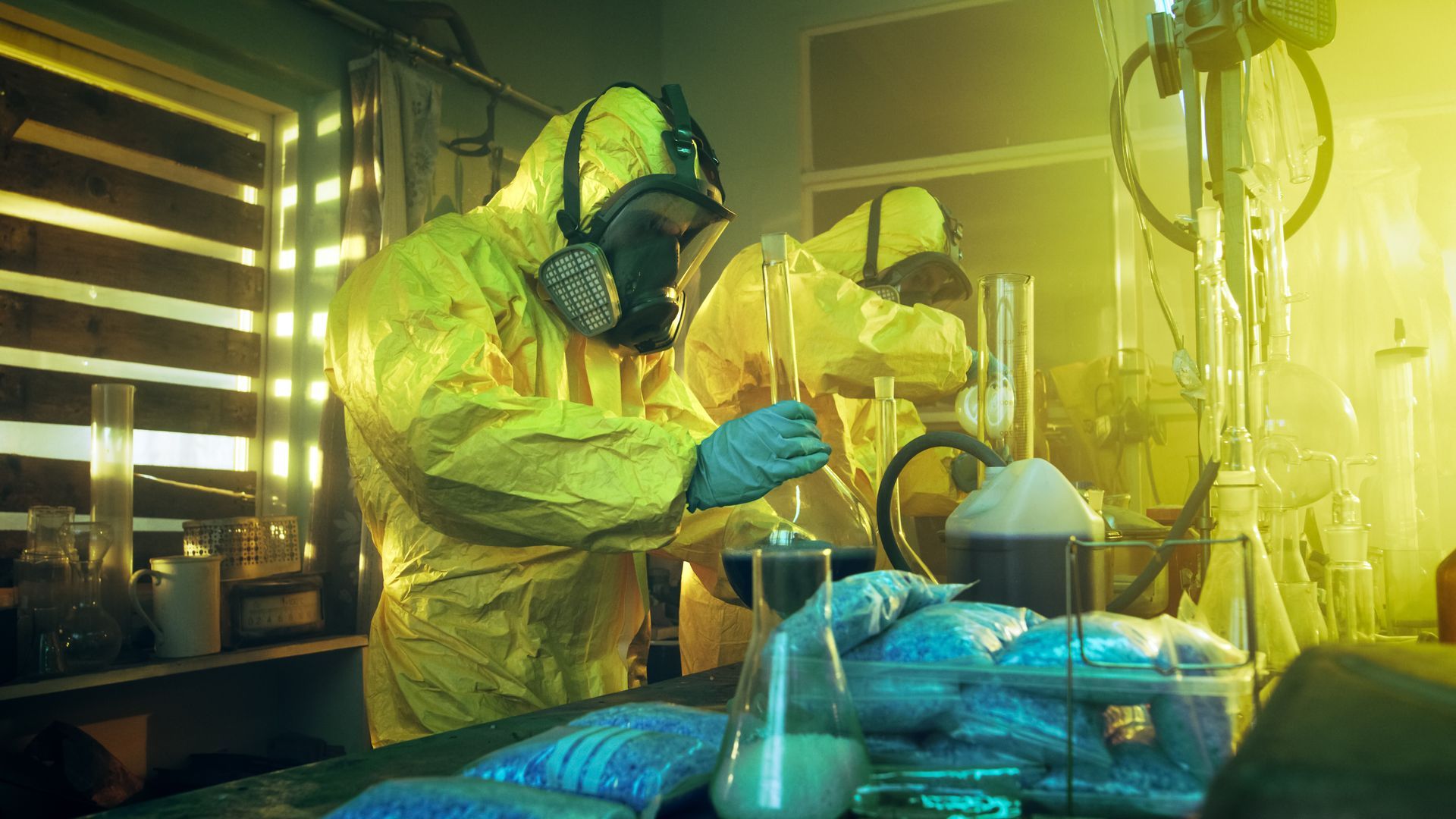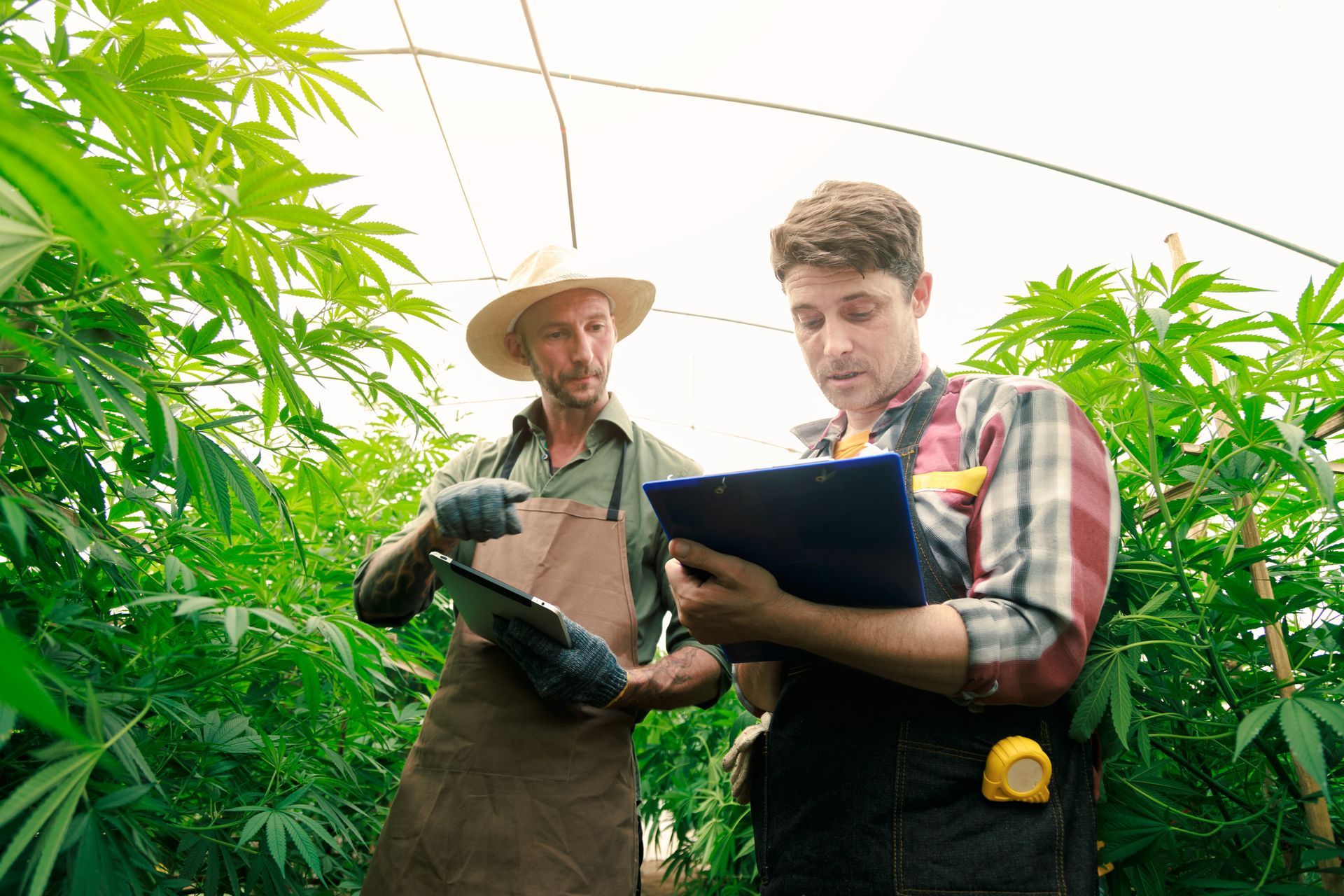Are Drug Manufacturing Charges in Arizona Misdemeanors or Felonies?

Drug manufacturing is considered one of the most serious non-violent offenses under Arizona law and is almost always charged as a felony in Arizona. Whether someone was caught operating a full lab, assisted in the grow process, or simply provided materials, the penalties are steep and prison time is often on the table.
However, not everyone involved in a manufacturing case faces the same charges. The justice system is capable of differentiating between different roles people play in cultivation and manufacturing operations, and each individual’s own part can influence the severity of the offense.
What Is Considered Drug Manufacturing in Arizona?
Drug manufacturing refers to the creation or production of illegal substances, either through chemical synthesis (as with meth or LSD) or by cultivating and processing plant-based drugs (like psilocybin mushrooms or marijuana grown outside legal limits). This is covered under various statutes including ARS 13-3407 (for dangerous drugs) and ARS 13-3405 (for marijuana).
Activities that may be considered manufacturing include:
- Operating or maintaining a drug lab
- Mixing or processing raw materials
- Extracting active compounds from plants or chemicals
- Packaging or preparing drugs for sale
In Arizona, even possessing chemicals or equipment used to manufacture drugs can lead to charges, particularly if there’s evidence of intent to use them unlawfully.
Is Drug Manufacturing Ever a Misdemeanor?
No. Manufacturing illegal drugs is always charged as a felony under Arizona law. These charges are typically classified as Class 2 or Class 3 felonies, depending on the drug involved and the scale of the operation. Even in cases involving marijuana, once cultivation or processing is involved, felony charges are likely.
There is a possibility that a criminal defense attorney will be able to negotiate the felony to a lower class, like a Class 4 or Class 6 felony, but that’s often dependent on the strength of the prosecution’s case and the defendant’s role in the operation.
For a defendant to be charged with a misdemeanor instead, the prosecution would need to amend the charges to lower level offenses such as possession of drug paraphernalia or possession of a controlled substance.
Factors That Influence the Severity of Charges
Type of Drug
Methamphetamine, fentanyl, and LSD are treated as dangerous drugs, which carry harsher penalties. Marijuana and mushrooms may result in lower felony classifications, but still typically lead to prison-eligible charges when grown or produced illegally.
Quantity Involved
Larger quantities increase the likelihood of being charged with intent to sell or distribute, which enhances the severity. Threshold amounts are built into Arizona’s drug laws and often determine whether a charge is considered for personal use or trafficking.
Role in the Operation
Someone found running the lab or producing large batches of drugs will almost always face the most serious charges. However, those who assist in minor ways, such as providing space, supplies, or transportation, can still be charged as co-conspirators.
That said, prosecutors may file lesser felony charges or offer plea deals to lower-level participants. For example:
- A person who only delivered chemicals but had no hand in production might face a Class 3 or 4 felony, depending on intent and knowledge.
- A landlord who rented out a property unknowingly used for drug production might avoid criminal liability altogether, unless prosecutors can prove they knew or should have known what was going on.
Prior Criminal History
A first-time offender may be eligible for diversion programs or probation in rare cases involving lesser drugs or small quantities. Repeat offenders, especially those with prior drug felonies, face enhanced sentencing and mandatory prison time.
Presence of Weapons or Minors
If weapons were found at the site or children were present during the offense, the charges could be elevated. These aggravating factors make plea deals harder to obtain and increase the risk of mandatory prison sentences.
Sentencing Overview
- Class 2 Felony:
Often charged for manufacturing meth, LSD, fentanyl, or any operation considered large-scale or
involving distribution. Penalties can include 3 to 12.5 years for a first offense (more if prior felonies are involved).
- Class 3 Felony:
May be charged for manufacturing less dangerous substances or playing a secondary role in a drug operation. Penalties can include 2 to 8.75 years for a first offense.
- Class 4 Felony: Possible for minor involvement, accessory charges, or manufacturing paraphernalia without completing production. Penalties can include 1 to 3.75 years, though probation might be possible in limited cases.
Talk to an Attorney Before Making Assumptions
If you’ve been charged with drug manufacturing in Arizona, or believe you might be under investigation, don’t assume all hope is lost. These charges carry severe penalties, but contacting a criminal defense attorney as soon as possible can make a significant difference in how your case is handled.
An Arizona Board-Certified Criminal Defense attorney can help you understand the charges, challenge the evidence, and explore options to reduce your exposure to prison time. Call Michael Alarid III at (602) 818-3110 to request a free case evaluation.



